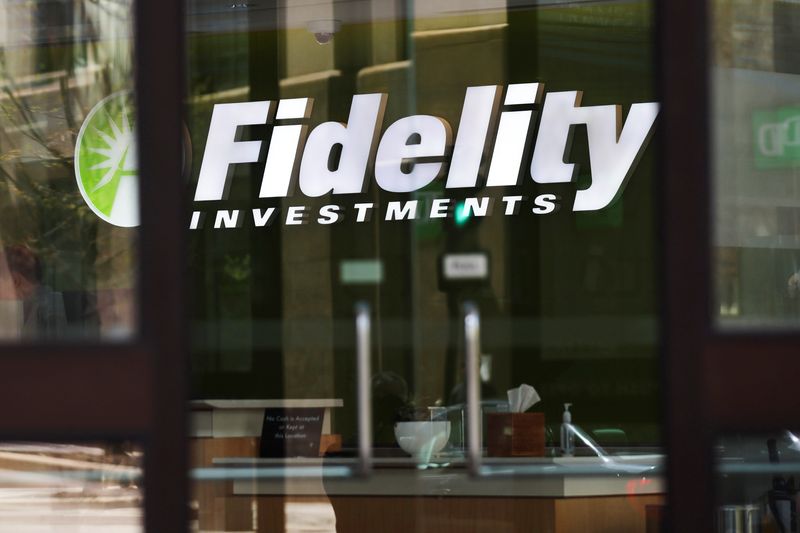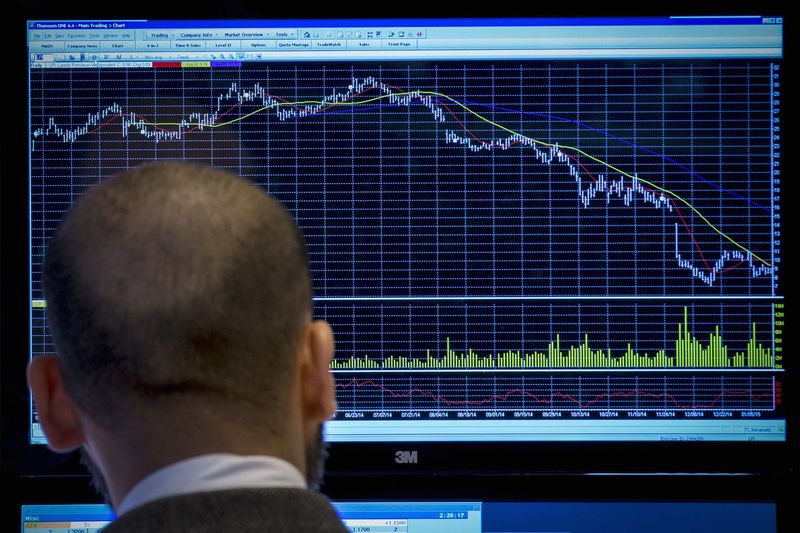By Suzanne McGee
(Reuters) – Fidelity Investments will not impose new fees on investors who buy exchange-traded funds (ETFs) issued by a group of smaller asset managers after making progress on a revenue-sharing deal with issuers, sources said those familiar with the matter told Reuters.
Agreements with the issuers to cover some of the costs associated with trading on its platform would be a win for Fidelity, which initially faced resistance from the ETF community to the idea of the revenue-sharing agreement .
Fidelity warned a group of nine issuers in April that if these companies did not negotiate or agree on a deal, their investors would have to pay up to $100 per ETF purchase on the Fidelity platform. These fees would have come into effect on June 3.
Smaller asset managers within the fast-growing but highly competitive ETF industry are concerned about the impact of transferring as much as 15% of their revenue from sales on the Fidelity platform to the company.
“The decision to harmonize some of our fee policies comes as our level of support and service for ETFs across the industry is rapidly growing,” a Fidelity spokesperson said. The company’s goal is to provide “a more consistent approach” to sharing the costs of maintaining a trading platform for ETFs and other assets.
Fidelity, which has allowed investors to trade ETFs for free since 2019, last year asked the group of nine smaller issuers, including Simplify Asset Management, Rayliant Global Advisors and AXS Investments, to help cover operating costs.
It was unclear which of the nine companies have signed new revenue-sharing agreements with Fidelity and how many are still in negotiations.
However, at least one of the investment boutiques said Fidelity had left them between a rock and a hard place.
“One path – refusing to pay them and allowing our investors to be hit with this fee – is death,” said Jason Hsu, founder and chairman of Rayliant Global Advisors, adding that investors would simply turn to other ETFs turn.
The alternative “is to transfer a very large portion of the profit margins” on the company’s ETFs, he said, just days before negotiations with the brokerage began.
Rayliant has four ETF products, none of which have more than $100 million in assets.
The feud between Fidelity and the ETF issuers has given investors a glimpse into the economics of these trading platforms and their role in the growing ETF market. Over the past decade, both issuers and platforms have reduced fees to attract new investors.
“Fidelity and Schwab’s shift to offering free ETF trading to their investors starting in 2019 has changed the landscape,” said Dave Nadig, an independent ETF analyst.
Fidelity’s attempt to collect fees from issuers “is completely unsurprising, as Fidelity may claim it provides value, but for many of these issuers, paying 10% to 15% of their revenue would wipe out their margins.”
ETF industry members worry that paying entry fees will ultimately make it harder for them to launch new products, compete with industry giants and keep ETF costs low.

Taylor Krystkowiak, vice president and investment strategist at Themes ETFs, said the move “increases costs for us and potentially for investors, raising the bar for success and survival for new issuers and disrupting large incumbents like BlackRock Inc (NYSE: ) gives more power. and Fidelity itself to strengthen their market share. His company was not one of the nine listed by Fidelity as potentially subject to a surcharge.
“This is a huge step backwards,” he said.


